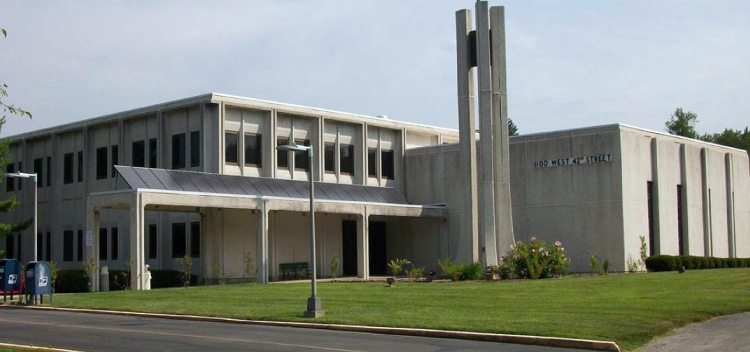
WE ARE THE IIC
What the IIC Offers
The Indiana Interchurch Center offers its tenants some of the best facilities in Indianapolis:
- An inclusive and welcoming culture
- Ample Free Parking
- Great Conference Rooms — Four intimate meeting rooms holding more than 12-25 people; and two major conference rooms holding 120
- On-Site Management
- Central location, close to Newfields, Christian Theological Seminary, and Butler University
- Natural Habitat Certification
- Energy management
- On-Site Art Gallery
- Labyrinth
- Fiber-Optic Internet Connectivity
- 24-Hour Camera Surveillance
History of the IIC
The original owners and tenants of the Indiana Interchurch Center when it opened July 5, 1967:
- The Church Federation of Greater Indianapolis
- The Indiana Council of Churches
- The United Church of Christ
- The Methodist Church, Indiana
- The Christian Church (Disciples of Christ)
- The United Presbyterian Church, Synod of Lincoln Trails
- The Episcopal Church, Indianapolis Diocese
Over fifty years, some of the denominational headquarters moved to other space, some organizations ceased operations. Today the Interchurch Center’s judicatories are:
- The United Church of Christ, Indiana-Kentucky Conference
- The Christian Church in Indiana (Disciples of Christ)
- The Synod of Lincoln Trails (Presbyterian Church USA in Indiana and Illinois)
The American Baptist Churches of Greater Indianapolis is also in the Interchurch Center, but has no financial investment in the building. Historically, three others had financial interest in the property: what is now the Indiana Conference of the United Methodist Church, what was the Indiana Council of Churches, and what was the Church Federation of Greater Indianapolis. Christian Theological Seminary has an interest in the land since they lease it to us, and three of our Board members represent CTS.
Over time, many nonprofits have moved into the Center. Several of these new organizations are faith-based, others are secular. But all are driven by values of social justice and dignity: protecting the vulnerable, preventing environmental degradation, helping refugees in Indiana and around the world, promoting human and civil rights, and fostering interfaith dialogue and cooperation
